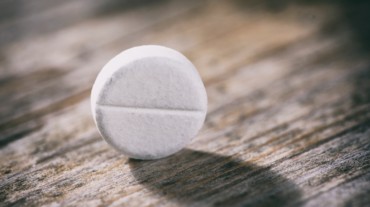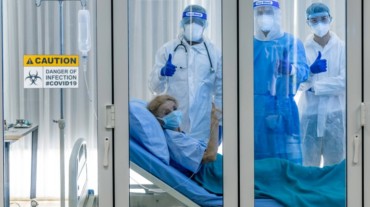
A lot has been tried and tested when it comes to treating covid-19. Right from antiviral drugs to antimalarial medicines—experimental treatments are being studied all over the world. Not to mention, the race for the vaccine is still on with the covid-19 being touted for a 2021 release.
In all of this, there is another potential covid-19 treatment that is making a name for itself. And this one happens to be easily available over the counter in most countries. We are talking about aspirin.
According to researchers at the University of Maryland School of Medicine (UMSOM), hospitalised covid-19 patients who take a daily low-dose of aspirin have a significantly lower risk of complications and death.
The researchers found that aspirin use was associated with a 44% reduction in the risk of being put on a mechanical ventilator, a 43% decrease in the risk of ICU admission, and —most importantly—a 47% decrease in the risk of dying in the hospital compared to those who were not taking aspirin.
“We believe that the blood thinning effects of aspirin provide benefits for covid-19 patients by preventing microclot formation,” said the study co-author Michael A. Mazzeffi, MD, associate professor of Anesthesiology at UMSOM.
“There is a clear rationale for believing that it (aspirin) might be beneficial, and it is safe, inexpensive and widely available,” said Peter Horby, co-chief investigator of the RECOVERY trial in the UK, which is looking into a range of potential treatments for covid-19.

Patients infected with the coronavirus are at a higher risk of blood clots because of hyper-reactive platelets, the cell fragments that help stop bleeding. Aspirin is an anti-platelet agent and can reduce the risk of clots, the RECOVERY trial’s website said on Friday.
At least 2,000 patients are expected to randomly get 150 mg of aspirin daily along with the usual regimen. Data from those patients will be compared with at least 2,000 other patients who receive the standard covid-19 treatment on its own, the website showed.
Small daily doses of aspirin has been found to reduce the risk of certain cancers. As a blood thinner, it increases the risk of internal bleeding, and taking too much over a long period of time has been associated with kidney damage.
One of the severe complications of covid-19 is blood clotting. In fact, more and more researchers are calling for screening of blood clotting abnormalities in patients, especially given the fact this infection can cause a stroke.
Select Topics of your interest and let us customize your feed.
PERSONALISE NOWAspirin, which is often given to patients with hypertension and heart disease, is used to thin the blood thus reducing the chances of blood clots. In fact, it used to prevent heart attacks and strokes in vulnerable patients.
In hospitalised covid-19 patients with near-fatal complications, the blood thinning action of aspirin can ensure a lesser chance of death and hence better recovery.
While we wait for scientists to give their seal of approval for aspirin as a certified line for treatment for covid-19 patients, it’s crucial to remember this is the not first drug to promise hope. Hydroxycholroquine was tested intensively before researchers came to the conclusion that it just didn’t work for covid-19.
The best we can we do in this moment is to safeguard ourselves from the infection in the first place and be patient.
(With inputs from ANI and Reuters)
Get Latest Updates on Health News